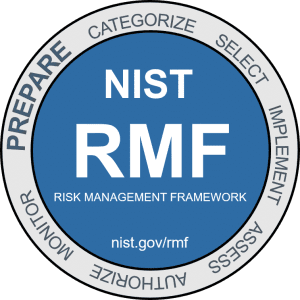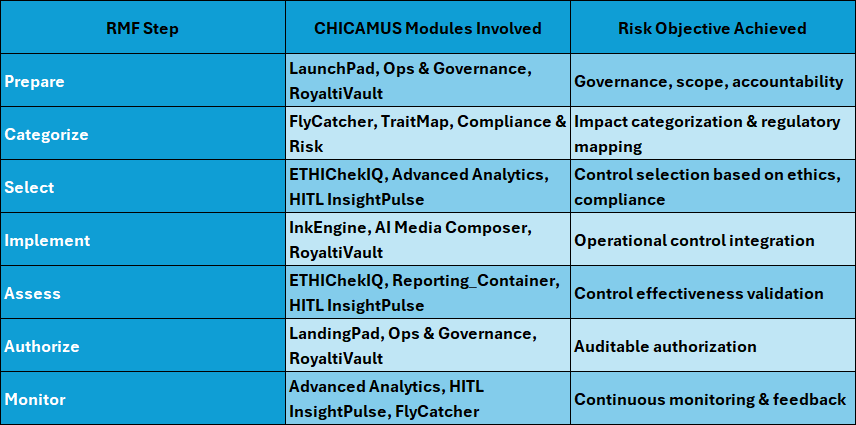How CHICAMUS AI Systems (ModuLogic + AMOS) align with the NIST Risk Management Framework (SP 800-37 Rev. 2). The assessment maps CHICAMUS modules to each RMF step, outlining how risks are prepared for, categorized, controlled, implemented, assessed, authorized, and monitored throughout the AI system lifecycle.
NIST Objective: Establish risk context, roles, resources, and governance strategy before system development or operation.CHICAMUS Alignment:
Risk Outcome Achieved: Clear governance, scope definition, and accountability before any module execution.
NIST Objective: Define the impact level of the system based on confidentiality, integrity, and availability (CIA) and mission objectives.CHICAMUS Alignment:
Risk Outcome Achieved: Impact categorization aligned to business and regulatory requirements.
NIST Objective: Choose appropriate security and compliance controls to mitigate identified risks.CHICAMUS Alignment:
Risk Outcome Achieved: Selection of controls based on ethical, compliance, and operational needs.
NIST Objective: Put selected controls into operation.CHICAMUS Alignment:
Risk Outcome Achieved: Operational embedding of governance and compliance safeguards into the AI content lifecycle.
NIST Objective: Evaluate if controls are implemented correctly, functioning as intended, and meeting security requirements.CHICAMUS Alignment:
Risk Outcome Achieved: Continuous evaluation of risk controls against defined performance and compliance standards.
NIST Objective: Decision-maker formally accepts system operation based on assessed risk.CHICAMUS Alignment:
Risk Outcome Achieved: Documented, auditable go/no-go decision before deployment.
NIST Objective: Continuously track risk posture, identify changes, and adjust controls.CHICAMUS Alignment:
Risk Outcome Achieved: Documented, auditable go/no-go decision before deployment.



